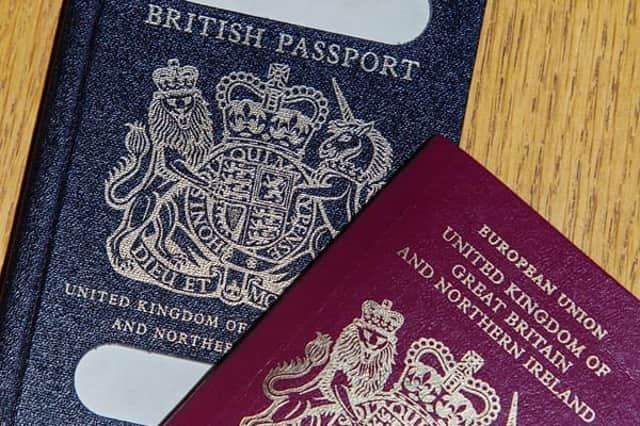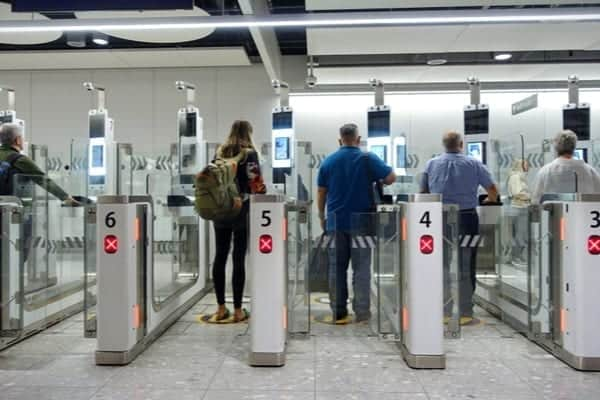This is everything you need to know about travelling to the EU after Brexit


If you’re planning a trip to an EU country after Brexit, then there are certain things you will need to consider that you may not have had to take into account before.
What will I need to do before I travel to Europe after Brexit?
According to gov.uk, to visit Europe after Brexit there are things you need to do before you travel, including:


Advertisement
Hide AdAdvertisement
Hide Adchecking your passportgetting travel insurance which covers your healthcarechecking you have the right driving documentsorganising pet travel - you need to contact your vet at least four months before you go
Gov.uk explains that this “applies both if you’re a tourist or travelling for business.
“Business travel includes activities such as travelling for meetings and conferences, providing services (even with a charity), and touring art or music.”
There are also extra actions you may have to take if you’re planning to travel for business.
Advertisement
Hide AdAdvertisement
Hide AdThese include checking travel requirements, your qualifications, whether you’ll need to pay social security contributions in the country you’re working in, looking at whether you need indemnity insurance for your employees, and checking if you’ve got the right documentation to take goods to the EU.
Renewing passports
You may need to renew your British passport earlier if you’re travelling after Brexit.
On the day that you travel, your passport will need to both:
have at least six months leftbe less than 10 years old (even if it has six months or more left)
Advertisement
Hide AdAdvertisement
Hide AdIf you do not renew it, you may not be able to travel to most EU countries, as well as Iceland, Liechtenstein, Norway and Switzerland.
You can use this online tool to check whether your passport is valid for the country that you’re visiting.
Make sure your healthcare is covered
Get appropriate travel insurance with healthcare cover before you travel abroad.After Brexit, your European Health Insurance Card (EHIC) card may not be valid.
Gov.uk adds that “it’s particularly important you get travel insurance with the right cover if you have a pre-existing medical condition. This is because the EHIC scheme covers pre-existing conditions, while many travel insurance policies do not.”
Travel
Driving
Advertisement
Hide AdAdvertisement
Hide AdYou will need some extra documents after Brexit, including an international driving permit (IDP) to drive in some countries. Click here to check if you need an IDP.
If you’re taking your own vehicle, you will also need:
a ‘green card’ - allow 1 month to get this from your vehicle insurance companya GB sticker
Flights, ferries, cruises, Eurostar and Eurotunnel, bus and coach services
After Brexit, the following will be able to run as before:
flightsferries and cruisesthe Eurostar and Eurotunnelbus and coach services between the UK and the EU
If you’re flying:
airport security procedures will not change for direct flights to and from the UKthere should not be delays at airport security if you change flights in EU airports
Advertisement
Hide AdAdvertisement
Hide AdHowever, Gov.uk notes that “bus and coach services to non-EU countries, for example Switzerland or Andorra, may not be able to run.
“The government is working to make sure these continue with minimal or no disruption.”
You should keep checking for updates or contact the company you booked with if you have any questions.
Travelling with pets
After Brexit you will not be able to use the current pet passport scheme. You will instead need to follow a different process, which takes four months to arrange.
Advertisement
Hide AdAdvertisement
Hide AdFor more guidance about pet travel to Europe after Brexit, visit: gov.uk/guidance/pet-travel-to-europe-after-brexit
Visas and entering other countries
After Brexit, you should not need a visa for short trips, according to European Commission proposals.
You should be able to stay for up to 90 days in any 180 day period, but you may need a visa or permit to stay for longer, or to work or study.
When the rules are confirmed regarding visas, information about how to get one if you do need one will be available on each country’s travel advice page.
Advertisement
Hide AdAdvertisement
Hide AdFor more information on how to check this, visit: gov.uk/foreign-travel-advice
Travel to Ireland will not change after Brexit and you’ll also be able to work in Ireland in the same way as before. However, the rules may be different if you’re travelling for business.
Border control
At border control, you may need to:
show a return or onward ticketshow you have enough money for your stayuse separate lanes from EU, EEA and Swiss citizens when queuing
Airport security procedures will not change for direct flights to and from the UK (Photo: Shutterstock)
Duty-free
Advertisement
Hide AdAdvertisement
Hide AdSome rules will temporarily change. However, you will be able to buy duty-free tobacco and alcohol when you’re travelling to the EU:
from ports, airports and international train stations in the UKon board ships, planes and trains from the UK
Note: This guidance does not apply to bringing goods from Northern Ireland to Ireland.
Other important changes
You will need to declare cash of £10,000 or more (or the equivalent in another currency), if you take it between the UK and any other country.
If you’re a business:
Advertisement
Hide AdAdvertisement
Hide Adyou may need to make a customs declaration if you take goods with you to sell abroad or use for businessyou should find out what else you need to do to prepare your business for Brexit
There is also different guidance if you’re:
For further information and guidance on any of the above, visit: gov.uk/visit-europe-brexit
This article was originally published on our sister site, Lancashire Evening Post.